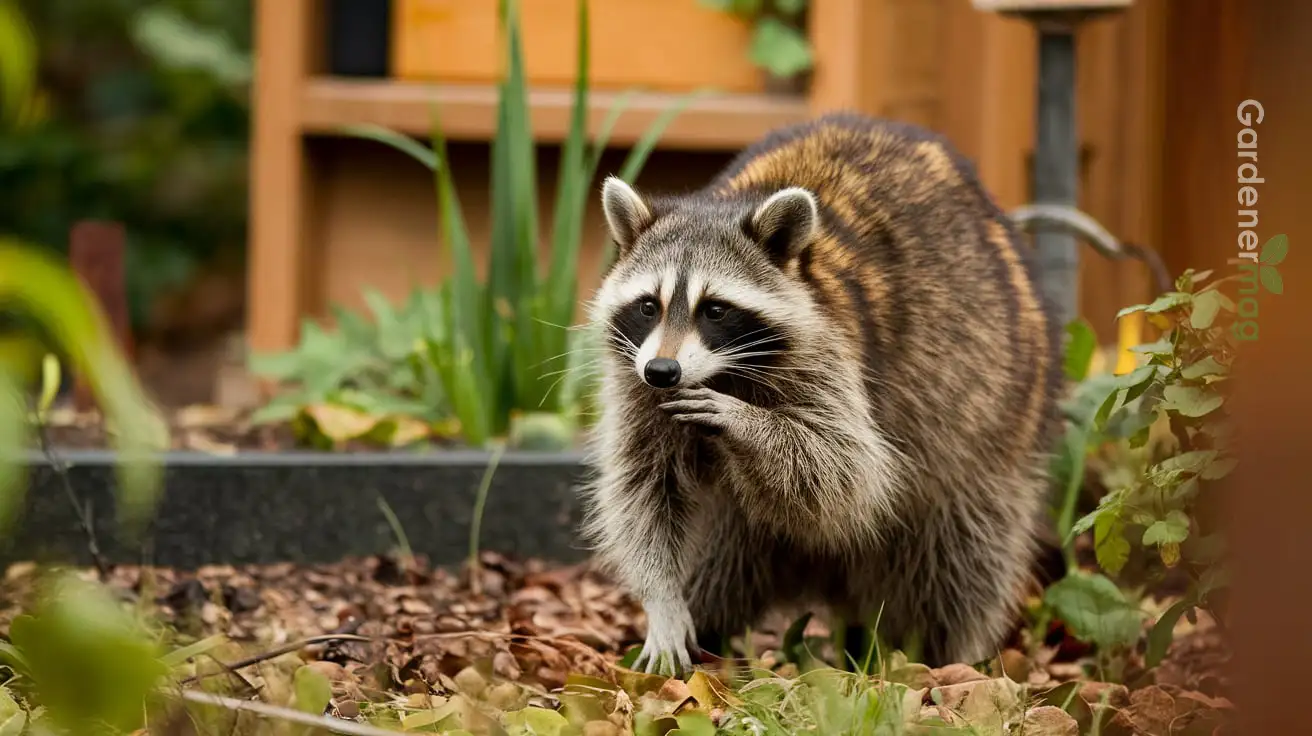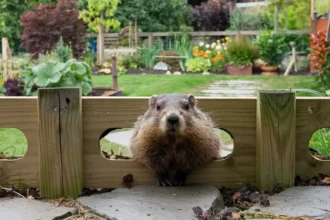Have you got raccoons disturbing your garden? These cute, furry little critters are mischievous and can wreak havoc on your garden, especially in high numbers, but keeping raccoons away from a garden doesn’t have to be a challenging task.
- Understanding Raccoons
- How To Identify Raccoons
- How To Deter Raccoons From Your Garden
- Garden Fencing
- Grow Deterrent Plants
- Get Rid of Food Sources Around Your Garden
- Make a Repellent with Cayenne Pepper or Garlic
- Use a Trash Can with a Locking Lid
- Use Vinegar or Ammonia
- Use Light and Sound
- Use Live Traps
- Conclusion
- Frequently Asked Questions (FAQs)
In this post, we will show you steps you can take to keep this nuisance of a pest under control. Read on.
Understanding Raccoons
Raccoons (Procyon lotor) are nocturnal creatures, which makes it easier for them to perpetrate their crime undisturbed.
They have five-toe paws, which makes them very swift and dexterous. Being good runners, jumpers, swimmers, and climbers, they can easily evade attacks and negotiate obstacles.
They are also very agile and can sometimes outsmart any setup meant to deter them.
During periods of severe weather – very cold or hot weather, raccoons do not hibernate. Instead, they stay in their dens, which is the reason why raccoons in northern areas lose a lot of their body fat.
Raccoons are not only dirty, but they are also parasite and disease carriers, including rabies. They also host roundworms, which are usually found in their poop.
Hence, raccoons can be dangerous and should be kept out of your garden and yard.
How To Identify Raccoons
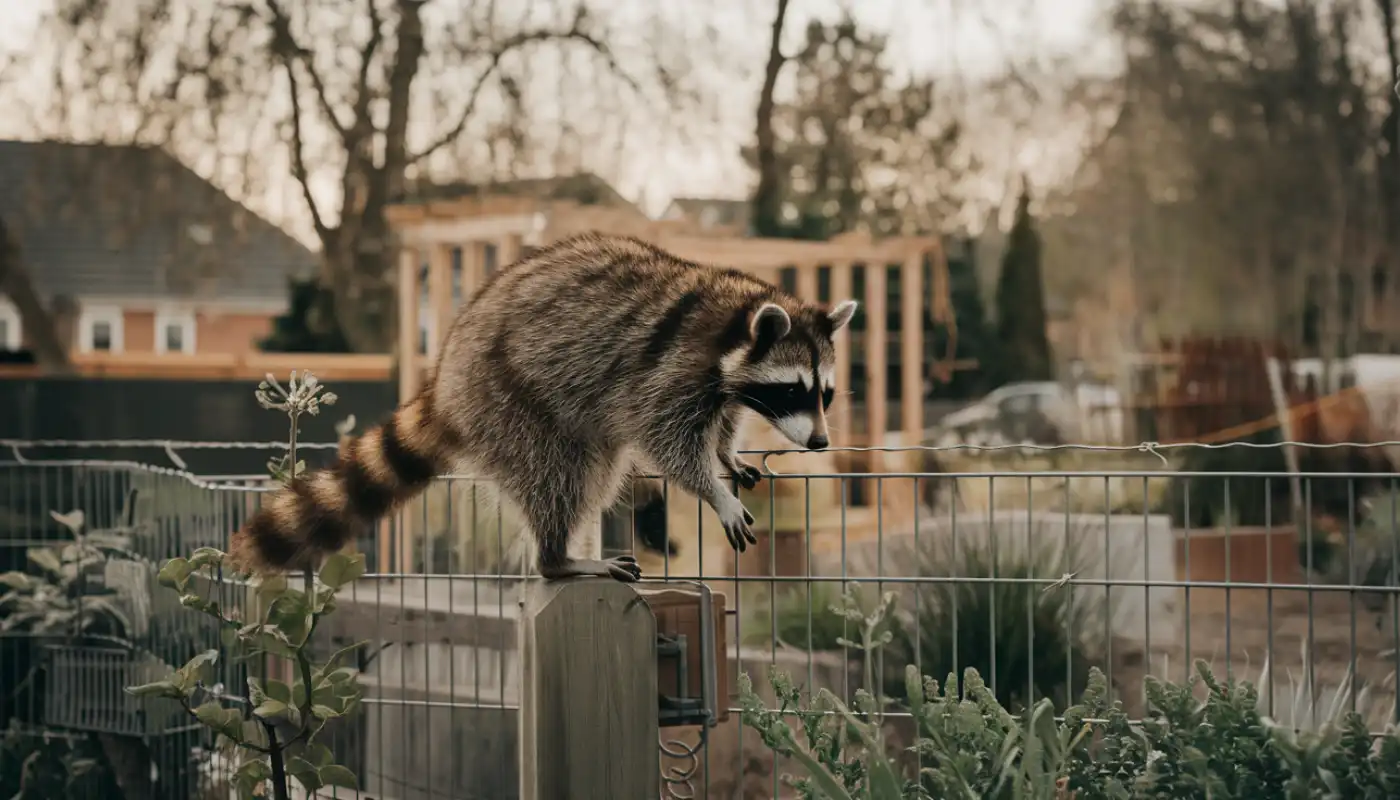
Since raccoons are nocturnal animals, they feed at night, making it difficult to identify them. However, there are some ways to identify raccoons and know when they start feasting in your garden.
- When you see distinct five-toed paw tracks in your garden
- When you see poop around your garden
- When your trash can is being scattered or looted
- When you see a lot of holes in your garden
- When you see dead livestock/animals in your garden.
How To Deter Raccoons From Your Garden
Here are sure ways to keep raccoons from your garden:
Garden Fencing
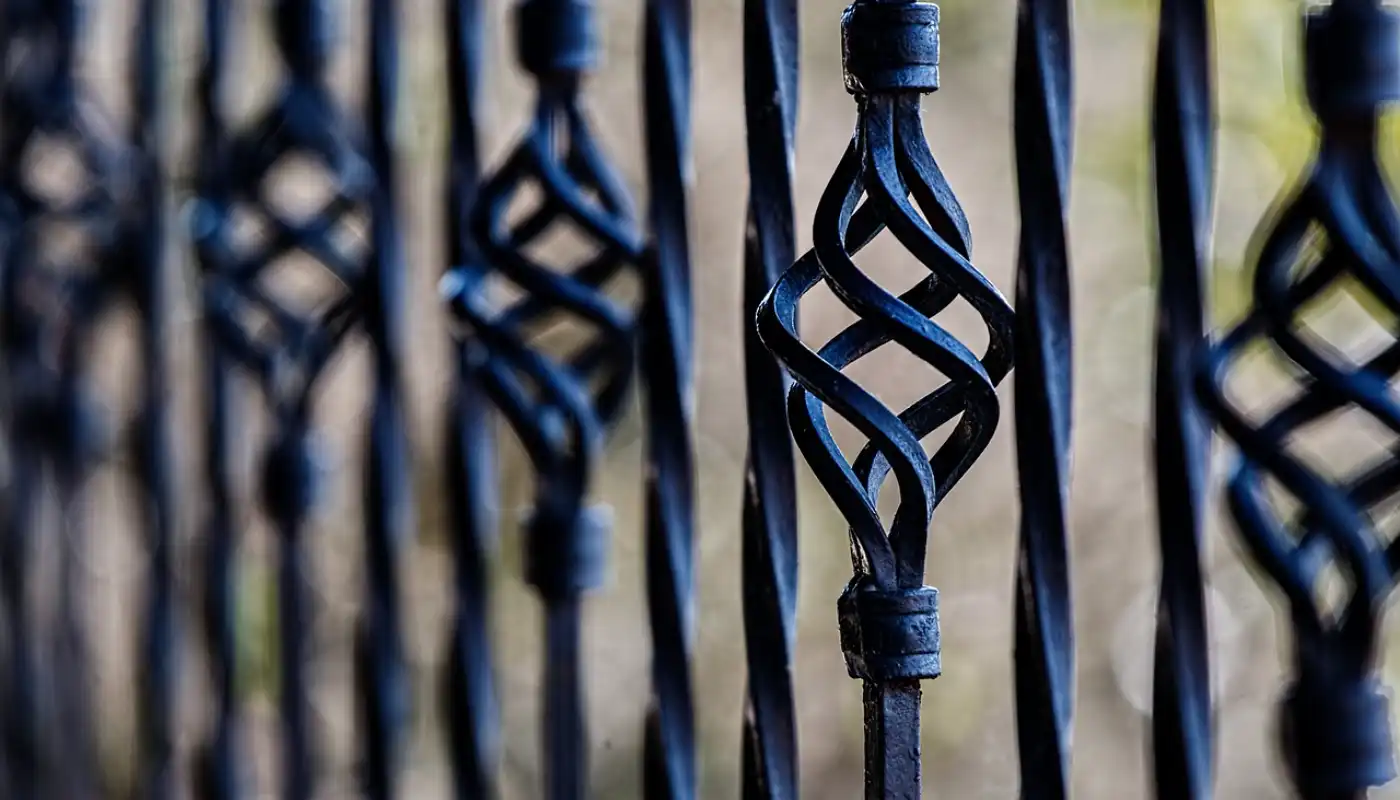
The best way to stop raccoons from your garden is to build a good fence around your garden.
Remember that these animals are good climbers and very agile. Hence, make sure that the garden fence is well built in such a way as to keep racoons out.
If possible, build an electric fence. Otherwise, install a two-wire fence – one at 4in. to 6in. above the ground and the other at 12in. above the ground.
Instead of building a regular fence around your garden, you can build a cage or chicken wire fencing around your raised garden beds to protect your precious crops.
Make sure that you build the cage or wire fencing in such a way that you can easily access your crops.
Grow Deterrent Plants
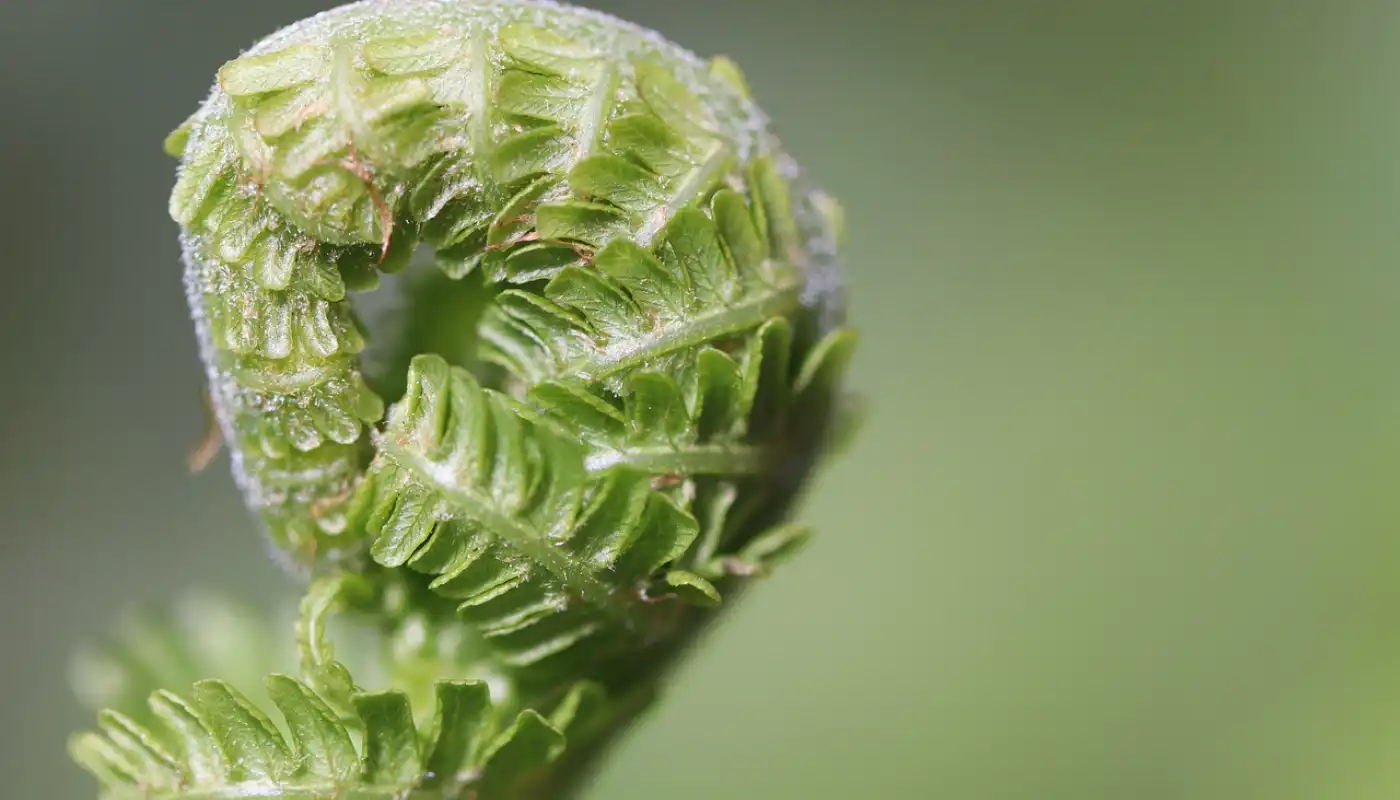
Plant cucumber in your garden, especially around the perimeters, to deter raccoons. Cucumbers act as a natural deterrent because raccoons hate their smell and will stay far away.
Get Rid of Food Sources Around Your Garden

Another way to get rid of raccoons is to get rid of all food sources around your garden, especially if your garden is near your home.
Make a Repellent with Cayenne Pepper or Garlic
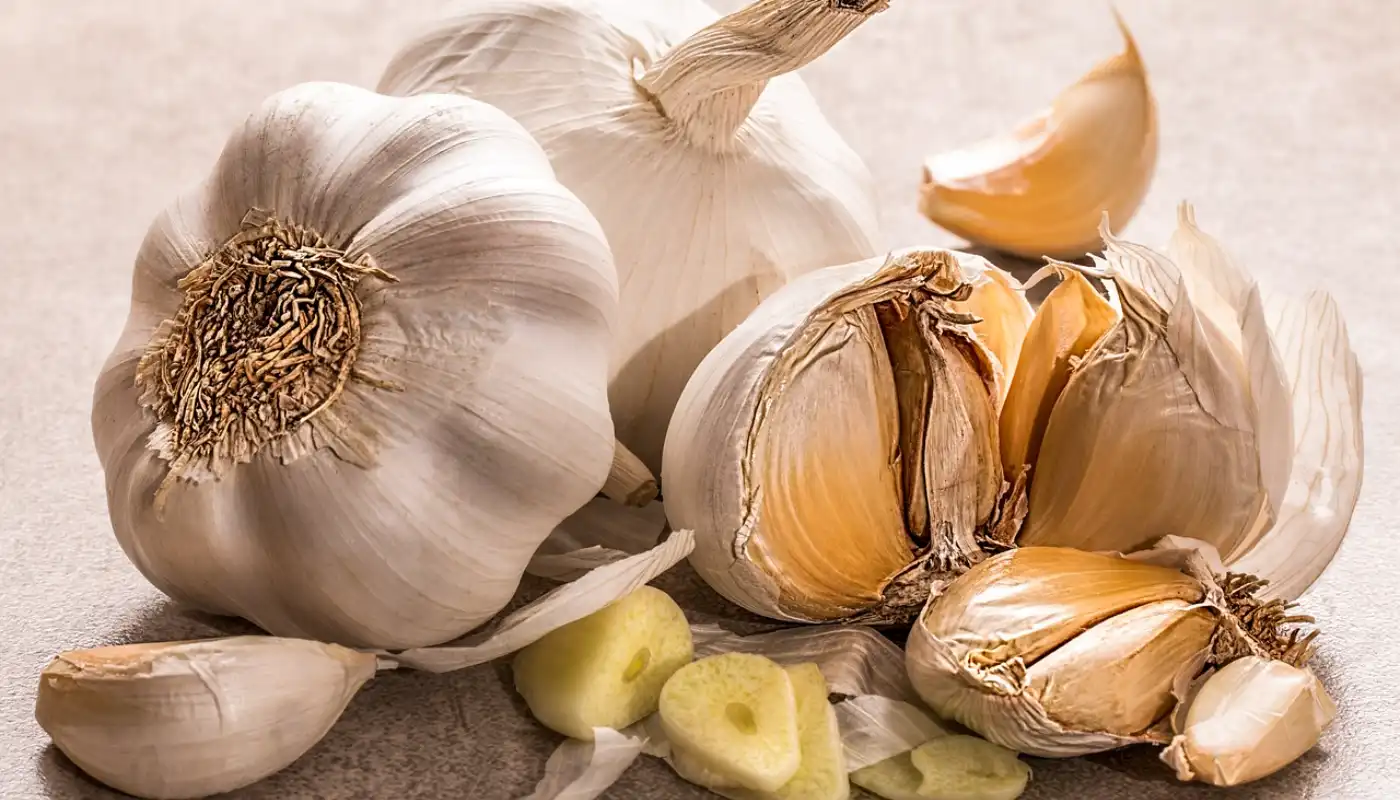
Raccoons hate the smell of cayenne pepper and garlic. Hence, you can use any of the two to repel raccoons.
Simply make a solution of cayenne pepper, pour it into a spray bottle, and spray some around the holes in your garden.
You can also get some garlic powder and sprinkle it around your garden.
Use a Trash Can with a Locking Lid
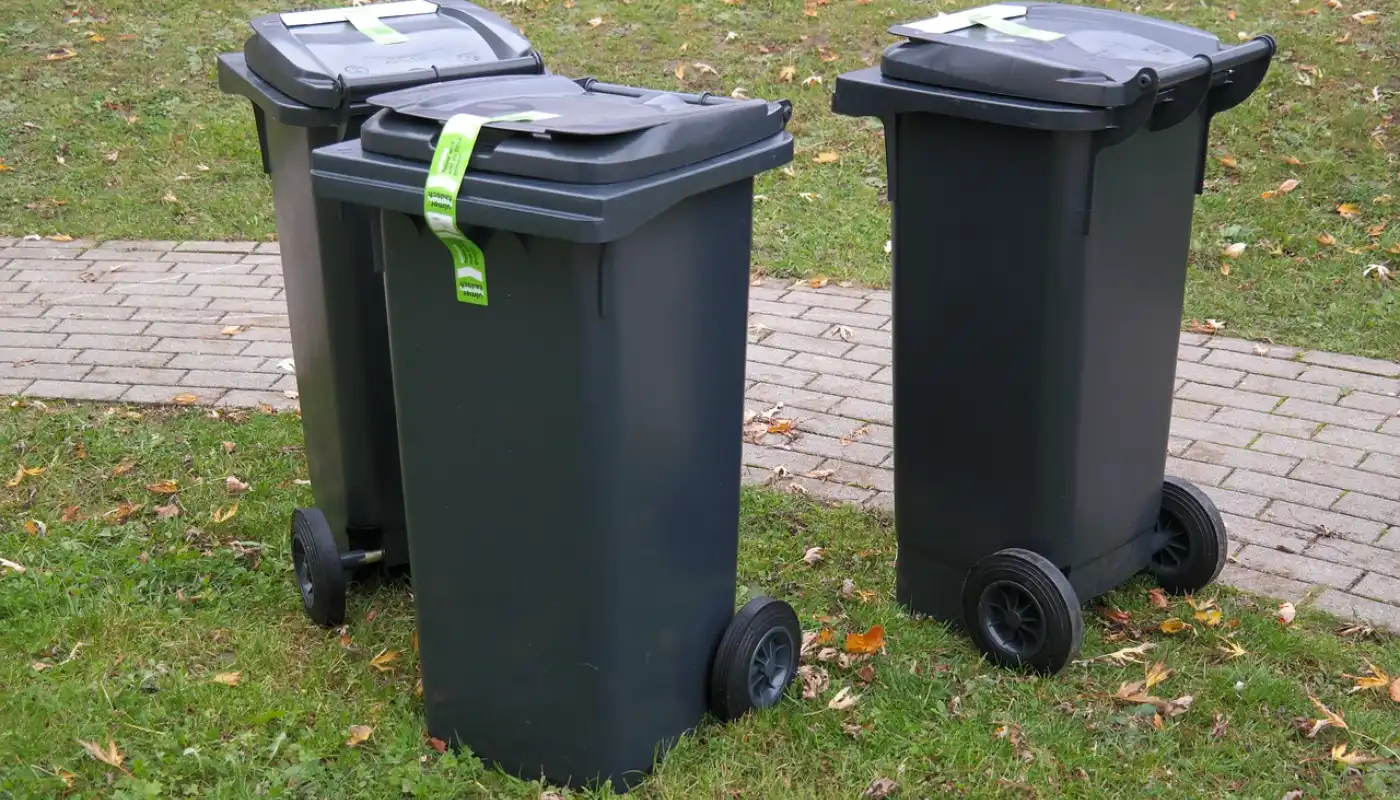
This also applies if your garden is near your home. Use a trash can with a locking lid so that the garbage will stay inside even when the can is knocked down.
This way, you are discouraging the raccoons by making your trash can inaccessible. If your trash can doesn’t have a locking lid, weigh down the lid using a cinder block.
Use Vinegar or Ammonia

You can also use vinegar or ammonia to keep the raccoons away. All you need to do is soak some cotton balls or soft clothes in ammonia or vinegar and place them near the raccoon’s hole. This will send them away.
You can also apply them to anything the raccoons are eating in your garden.
Use Light and Sound

Raccoons love a dark and quiet place, which is a reason why they are very active at night.
However, you can make your garden the opposite by installing bright lights and sounds to discourage these nuisance animals from sticking around.
If possible, get motion-activated light sources. Otherwise, a solar-powered light source is ok to scare the raccoons away. Don’t forget to always clean the solar panels regularly to keep the light shining brighter.
You can also place motion-activated sound-emitting devices or water sprinklers around where the raccoons are entering your garden.
Use Live Traps

This is another effective and easy method of keeping raccoons out of the garden.
Set up a trap near one of the frequent areas where you see a raccoon’s trail using fruit or vegetables, such as fresh melon, apples, or corn as bait.
If your garden is a frequented area, it won’t take long before you have an angry raccoon hissing in your trap.
If you choose to use a trap, do well to check with your local laws to ensure that you are not violating any rule.
Also, be careful when handling a raccoon or its cage. Remember that raccoons are notorious disease carriers. Any bite or scratch can send you to your doctor.
We recommend that you always wear heavy leather gloves and protective clothing to keep yourself safe.
Conclusion
Have you got raccoons in your garden? They have definitely found something they need around – food, water, or a warm and quiet place.
By combining all the methods listed above, you can effectively keep the annoying raccoons away and protect your garden.
Do you have any more tips for getting rid of a raccoon? Let us know below!
Frequently Asked Questions (FAQs)
There are several effective methods to scare raccoons out of your garden. These include the following:
Building physical barriers like chicken wire fencing around your raised beds or garden.
Using repellents, such as predator urine, ammonia, garlic, vinegar, or hot pepper spray around your garden.
Removing food sources.
Installing light sources and motion-activated noise or sounds.
If you find a raccoon in your garden, try as much as possible to avoid direct contact with it. Instead, scare it away using any of the methods explained above. However, if the raccoon persists, seek professional advice.


